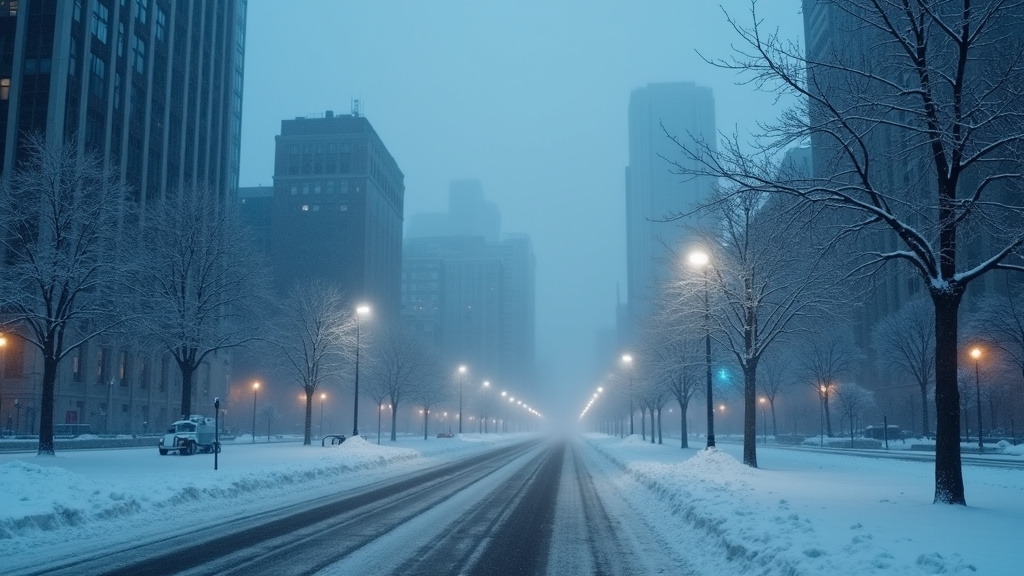CHICAGO, IL – In a significant legal victory for local governments and immigrant communities nationwide, a federal judge has decisively blocked the Trump administration’s efforts to withhold vital federal funding from Chicago and dozens of other cities and counties enforcing “sanctuary” policies. The ruling, which expanded upon earlier injunctions, reaffirms the constitutional limits on federal power and shields billions of dollars in critical grants that support public safety, infrastructure, and essential services.
The latest order, issued by U.S. District Judge William Orrick, extends protections to over 30 jurisdictions, including major metropolitan areas like Los Angeles, Boston, Denver, and Baltimore, alongside Chicago. This expansion follows Orrick’s initial injunction in April that safeguarded a smaller group of cities and counties. Judge Orrick, an Obama appointee, characterized the administration’s executive orders and subsequent actions as an “unconstitutional coercive threat,” effectively barring the government from using federal funding as leverage to compel local cooperation with federal immigration enforcement.
This development comes alongside a separate, but crucial, victory for Chicago. U.S. District Court Judge Lindsay Jenkins dismissed the Department of Justice’s lawsuit against Illinois, Cook County, and the City of Chicago earlier this month. Jenkins ruled that the federal government lacked the standing to invalidate state and local laws that limit cooperation with federal immigration enforcement, citing the Tenth Amendment’s protection of states’ rights and prohibiting federal commandeering of state resources. This dual judicial rebuff represents a significant setback for the Trump administration’s high-profile campaign against sanctuary cities.
Judicial Rebuke of Federal Overreach
The core of the legal battles hinges on the Trump administration’s aggressive stance against municipalities that maintain policies limiting cooperation with U.S. Immigration and Customs Enforcement (ICE). President Trump issued executive orders directing federal agencies, including the Department of Homeland Security (DHS) and the Department of Justice (DOJ), to identify and penalize “sanctuary jurisdictions” that obstruct federal immigration law enforcement. These orders threatened to suspend or terminate federal funding—potentially amounting to billions of dollars annually—unless cities and counties aligned their practices with the administration’s immigration agenda.
However, federal judges have repeatedly found these actions to be constitutionally questionable. Judge Orrick’s rulings have specifically targeted the administration’s approach, deeming it an “unconstitutional coercive threat” that exceeds the president’s executive authority. His decisions have emphasized that Congress, not the president, holds the power to dictate how federal funds are allocated and conditioned, particularly when such conditions are unrelated to the purpose of the grants themselves. The administration’s argument that sanctuary policies impede federal law enforcement was countered by judges who noted that these local ordinances do not prevent federal agencies from carrying out their duties but rather limit the use of local resources and personnel for federal civil immigration enforcement.
Chicago’s “Welcoming City” Stance
Chicago, a city with a long-standing commitment to its immigrant populations, exemplifies the policies at the heart of this dispute. The city’s “Welcoming City Ordinance,” first enacted in 2012 and strengthened over the years, aims to foster public safety and trust within immigrant communities. The ordinance prohibits city employees, including Chicago Police Department officers, from inquiring about or acting upon an individual’s immigration status or cooperating with federal civil immigration enforcement, unless legally mandated by a court order or specific federal law.
Proponents argue that these policies are vital for ensuring that all residents, regardless of immigration status, feel safe reporting crimes, seeking essential city services, and cooperating with local law enforcement. This, in turn, is seen as crucial for effective community policing and overall public safety, as it encourages individuals to come forward without fear of deportation. The ordinance does not prevent immigrants from being arrested or prosecuted for breaking state or local laws, nor does it stop federal authorities from conducting their own enforcement activities.
Billions at Stake: Funding and Local Autonomy
The federal funding threatened by the Trump administration’s directives impacts a wide array of critical programs. For cities like Chicago, these grants are not mere discretionary funds but are integral to maintaining essential services. They support initiatives ranging from public safety and law enforcement grants to housing assistance, healthcare programs, infrastructure development, and educational resources. The potential loss of billions of dollars posed a significant threat to the operational capacity of these municipalities and the well-being of their residents.
The legal challenges raised by these cities and counties have invoked fundamental constitutional principles, particularly the Tenth Amendment and the anti-commandeering doctrine. This doctrine, established through Supreme Court rulings, asserts that the federal government cannot compel states or their political subdivisions to administer or enforce federal regulatory programs. Critics of the administration’s policies argue that using federal funding as a cudgel to force compliance with immigration enforcement priorities constitutes an unlawful overreach of federal power and infringes upon the states’ and localities’ ability to govern themselves.
Official Reactions and the Continuing Debate
The judicial decisions have been met with strong endorsements from officials in Chicago and across the affected jurisdictions. Chicago Mayor Brandon Johnson hailed the dismissal of the DOJ lawsuit as a victory that “affirms what we have long known: that Chicago’s Welcoming City Ordinance is lawful and supports public safety.” He added that the city “cannot be compelled to cooperate with the Trump Administration’s reckless and inhumane immigration agenda” and is safer when local law enforcement focuses on the needs of Chicagoans. Illinois Governor JB Pritzker echoed these sentiments, emphasizing that the state’s laws are compliant with federal statutes and are enacted in the name of public safety, allowing undocumented immigrants to interact with law enforcement without fear.
The Trump administration, however, has signaled its intent to appeal these rulings, underscoring the administration’s continued commitment to its immigration enforcement agenda. The ongoing legal battles highlight the persistent tension between federal immigration policy objectives and the desire of many local governments to maintain their own approaches to community safety and immigrant integration. This popular and trending debate continues to shape the landscape of federal-state relations, with courtrooms serving as a key battleground. The rulings represent a significant moment in the national conversation, affirming that local policies, when grounded in constitutional protections, can successfully push back against federal pressure.













